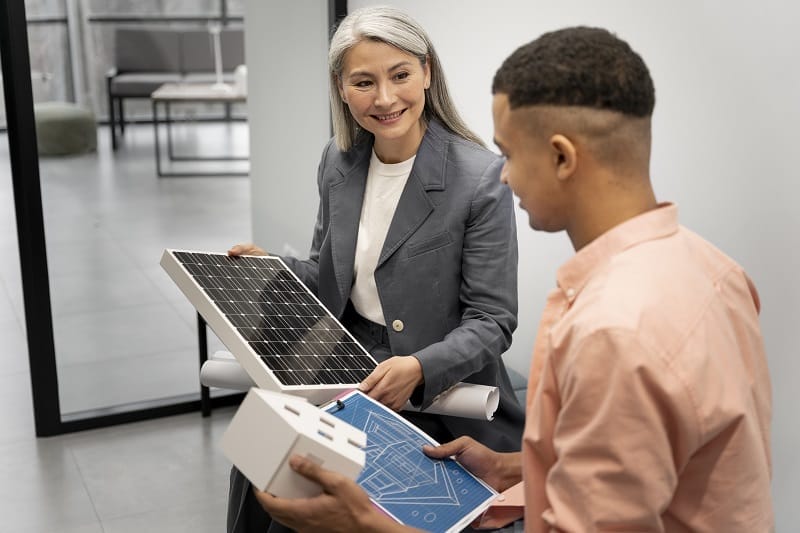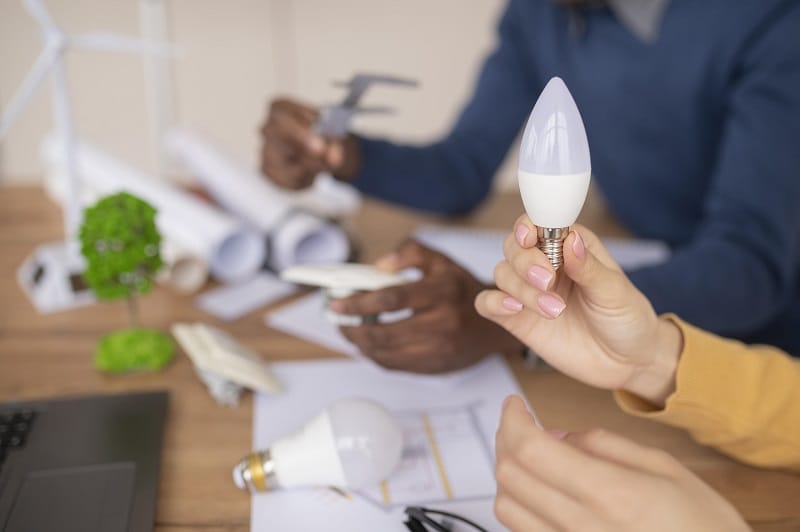What are the most significant obstacles to the development of sustainable energy?
27 June 2023
The entire country can’t go completely green overnight. But why not? What obstacles are standing between our current conditions and further development of sustainable energy? Continue reading to find out what some energy-conscious business leaders consider the largest obstacles on the path to sustainable energy development.
Political and economic clout of fossil fuel industries
One of the most significant barriers to the development of sustainable energy is the relatively high upfront costs associated with renewable energy infrastructure. These initial investments can be particularly challenging for developing economies and lower-income communities. Many renewable energy resources, like wind and solar, are intermittent and geographically dependent, posing practical challenges in terms of energy storage and transportation which require sophisticated technology and infrastructure.
Another hindrance is the political and economic clout of fossil fuel industries. These sectors have historically exercised a considerable influence on energy policies, which can sometimes result in regulatory biases against renewable energy.
In order to overcome these obstacles, there are a number of strategies that can be employed. First, improving our energy storage technology can help tackle the problem of the intermittent nature of some renewable resources. By developing more efficient battery systems, for instance, we can store and use solar and wind energy when needed.
Establishing more favorable policies and regulations that incentivize the use and development of renewable energy technologies is also crucial. This could include financial incentives like tax credits, grants, and subsidies that can offset the high upfront costs. Public awareness and education play a crucial role in transitioning to a more sustainable energy system.
Consumers ultimately drive supply and demand, and as more people understand the importance and benefits of renewable energy, their preferences can potentially influence the market and policy-making.
Storage for excess energy
The energy industry faces significant obstacles in the development of sustainable energy. One of the most pressing challenges is the high demand for electricity during peak hours, often when extreme weather conditions are prevalent. To ensure an uninterrupted power supply, the grid infrastructure needs to be oversized, resulting in inefficiency and increased reliance on polluting fossil fuel peaker plants.
The variable nature of renewable sources, such as wind and solar, means we can’t always call on these resources when we need them. This necessitates a reliable means of storing excess energy for use during disruptions in supply. Battery energy storage allows for the charging of non-emitting renewable energy sources and subsequent discharge when needed, ensuring a stable and sustainable electricity grid.
High initial investment and lack of reliable green energy sources
One of the most significant obstacles to the development of sustainable energy is the high initial cost. Investing in renewable energy infrastructure can be expensive, and this often deters governments and corporations from fully embracing these technologies. Another challenge is the intermittent nature of renewable energy sources like wind and solar. The sun doesn’t always shine, and the wind doesn’t always blow, which can lead to reliability issues.
To address these barriers, we need to invest more in research and development to make renewable energy technologies more efficient and cost-effective. Governments can also play a role by providing subsidies or tax incentives to encourage the use of renewable energy. As for the reliability issue, developing better energy storage solutions can help.
For instance, improving battery technology can allow us to store excess energy produced during peak production times and use it when production is low. Overcoming these obstacles is not only possible but necessary. After all, the future of our planet depends on our ability to transition to more sustainable forms of energy. So let’s roll up our sleeves and get to work, shall we?
Low public awareness
One of the major obstacles to the development of sustainable energy is access to funding. The cost of transitioning from non-renewable energy sources to renewable alternatives can be significant, and many governments lack the resources or financial incentives to make this transition.
Low public awareness about the benefits of renewable energy also plays a role in limiting its uptake. Many people are unaware of the environmental impacts of continuing to rely on non-renewable sources. As a result, they may not be motivated to take the necessary steps needed to reduce their carbon footprints.
In order for sustainable energy sources to become more widely adopted, governments and businesses must invest in research and development of renewable alternatives. This will help make sustainable energy options more cost-competitive with non-renewable sources. Furthermore, governments should provide financial incentives to encourage businesses and households to switch to renewable energy sources, such as tax credits or subsidies.
Progressive policy changes and targeted education campaigns
The most significant obstacles to the development of sustainable energy include conservative government policies that favor fossil fuels due to their influence, as well as persisting public misconceptions about technologies like electric cars and solar panels. Addressing these barriers
requires progressive policy changes and targeted education campaigns.
Additionally, transmission line capacity poses a significant challenge, as renewable resources are often situated in remote areas with inadequate infrastructure. This obstacle can be addressed through strategic investments in upgrading transmission networks to efficiently distribute
renewable power to populated regions.
This is a crowdsourced article. Contributors’ statements do not necessarily reflect the opinion of this website, other people, businesses, or other contributors.
Others articles you might like
Five energy procurement strategies for businesses
Securing the right energy contract isn't just about locking in the best rates. Energy procurement includes safeguarding your bottom line,...
9 April 2024Stabilizing energy costs in a volatile market
When we flip a switch, indoor lighting comes on with nearly the same dependability as the sun rising. This makes sense; the outside world...
21 March 2024Is now the best time to change business energy suppliers?
In the dynamic and globalized landscape of modern businesses, counting pennies matters. Optimizing expenses helps you gain a competitive edg...
5 March 2024








